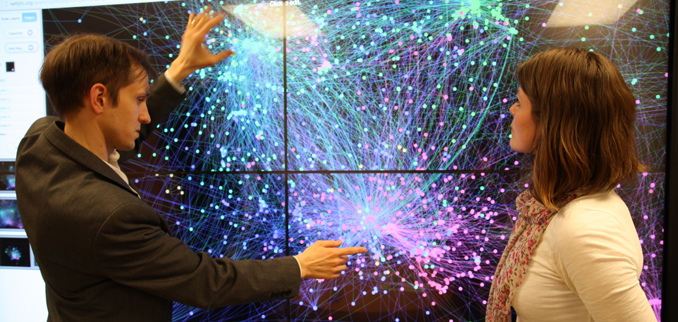A reseacher of LINIS attended at the conference on Artificial Intelligence in Mexico
Senior Researcher of the Laboratory for Internet Studies Sergey Nikolenko attended the 12th International Conference on Artificial Intelligence (MICAI) in Mexico in November 2013.
Construction of the subject in the age of social networks: memes, idiots and hackers
Using the work of Guattari, Simondon and Bakhtin Olga Goryunova considered new ways of constructing of a subject and subjectivity.
News preferences of Twitter users
Twitter users from different countries tend to read different types of news, a recent study by Brazilian scholar Marco Toledo Bastos has shown. Brits and Americans read world news and opinionated pieces, Spaniards prefer local news, while Brazilians favor items on football.

The structure of tweets: the most discussed and undiscussed topics
The International Summer School ‘Social Network Analysis: Internet Research’ has held in HSE St.Petersburg, August 15, 2013, which was organized by the Laboratory for Internet Studies and Sociology of Education and Science Laboratory. One of the lecturers at the school was Dr. Anatoly Gruzd - Director of Social Media Lab at Dalhousie University, Canada.
The Internet-Entangled Society Can Be Analyzed
The study of social networks on the internet is becoming more popularand more possible not only for researchers, but also for journalists, students, and ordinary users. There was clear evidence of this atthe international summer school ‘Social Network Analysis: Internet Research’, at the HSE campus in St. Petersburg which brought together participants from eleven countries. The organizers of the school - HSE Internet Studies Lab (LINIS) and the Sociology for Education and Science Laboratory – invited the audience topick out the best presentations for reward.
